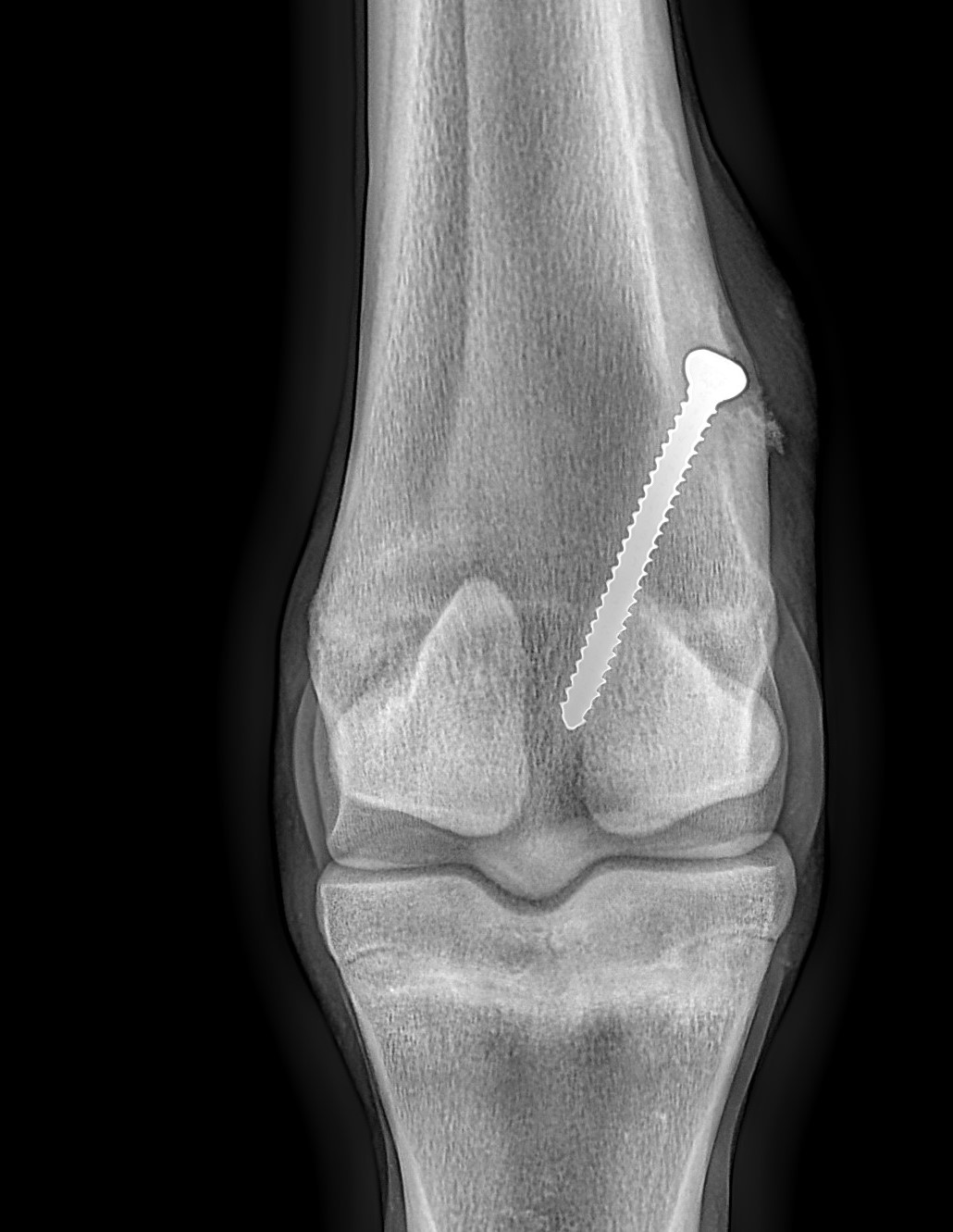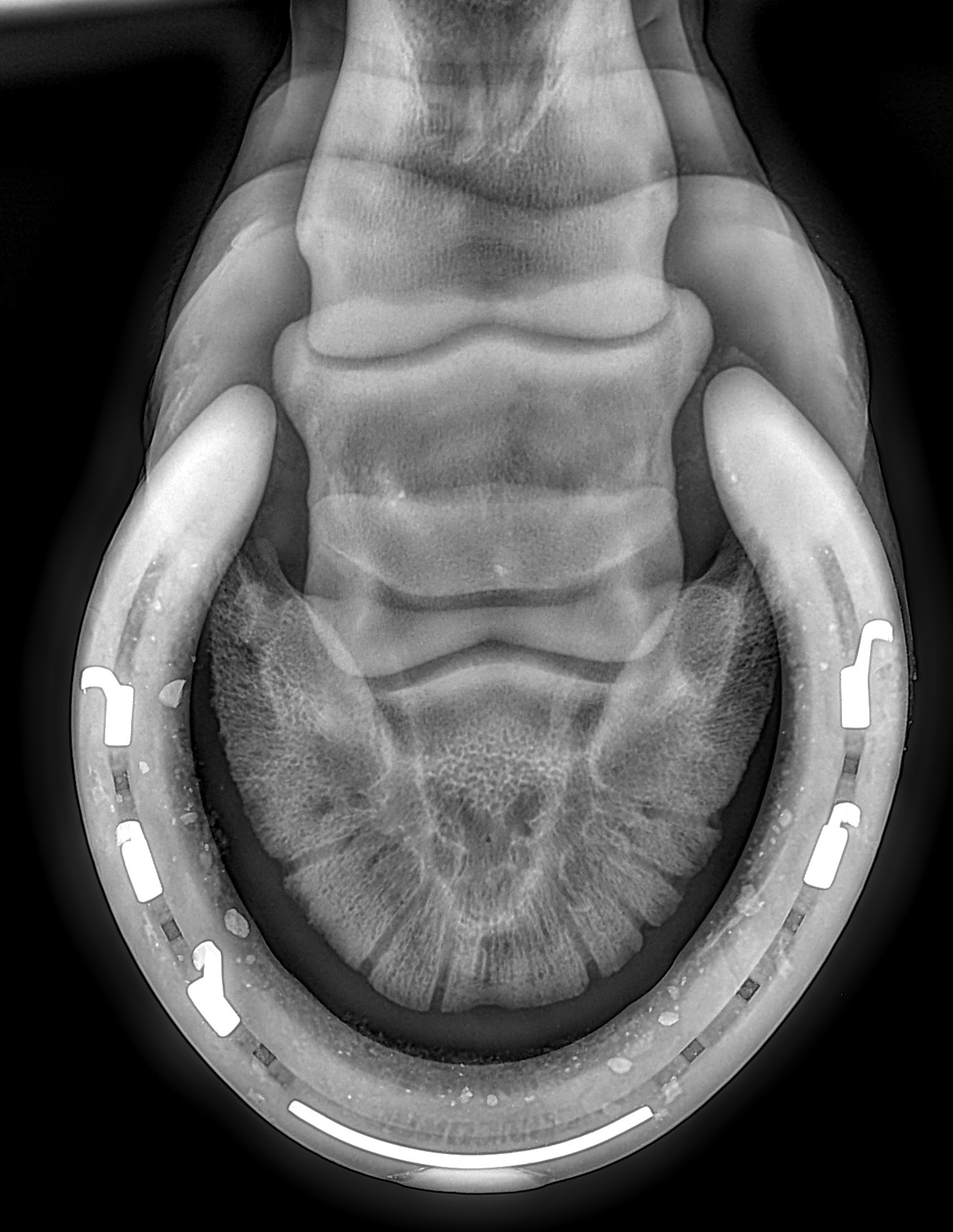Surgical Facilities
The clinic has an inbuilt surgery with inhalation anaesthesia. There is a secure induction/recovery room and an overhead gantry system to move the patients to the hydraulic surgery table. Our veterinarians perform the more routine procedures, e.g. hernia repairs, fractured splint bone removal, cryptorchid castration, molar tooth extraction etc. More complex procedures are performed by visiting mainland surgeons.
Stem Cell Therapy
Stem cell therapy is a relatively new procedure that has been found to be effective in the treatment of tendon and ligament injuries. Adult stem cells, which we use, may not be as versatile as embryonic stem cells, but they are far more readily available, much more cost effective and don’t have the associated ethical constraints. Studies have shown that bone marrow derived stem cells injected into damaged equine tendons showed ultrasonographic evidence of earlier healing. This treatment resulted in mechanically superior repair tissue. The horses own bone marrow is used as the source, usually harvested from the sternum.
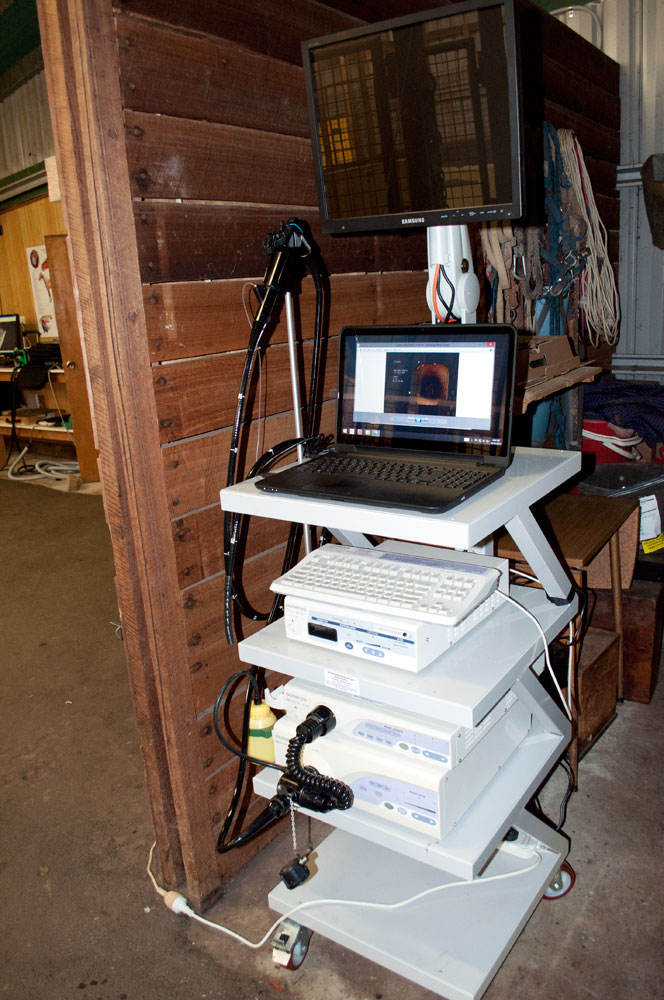
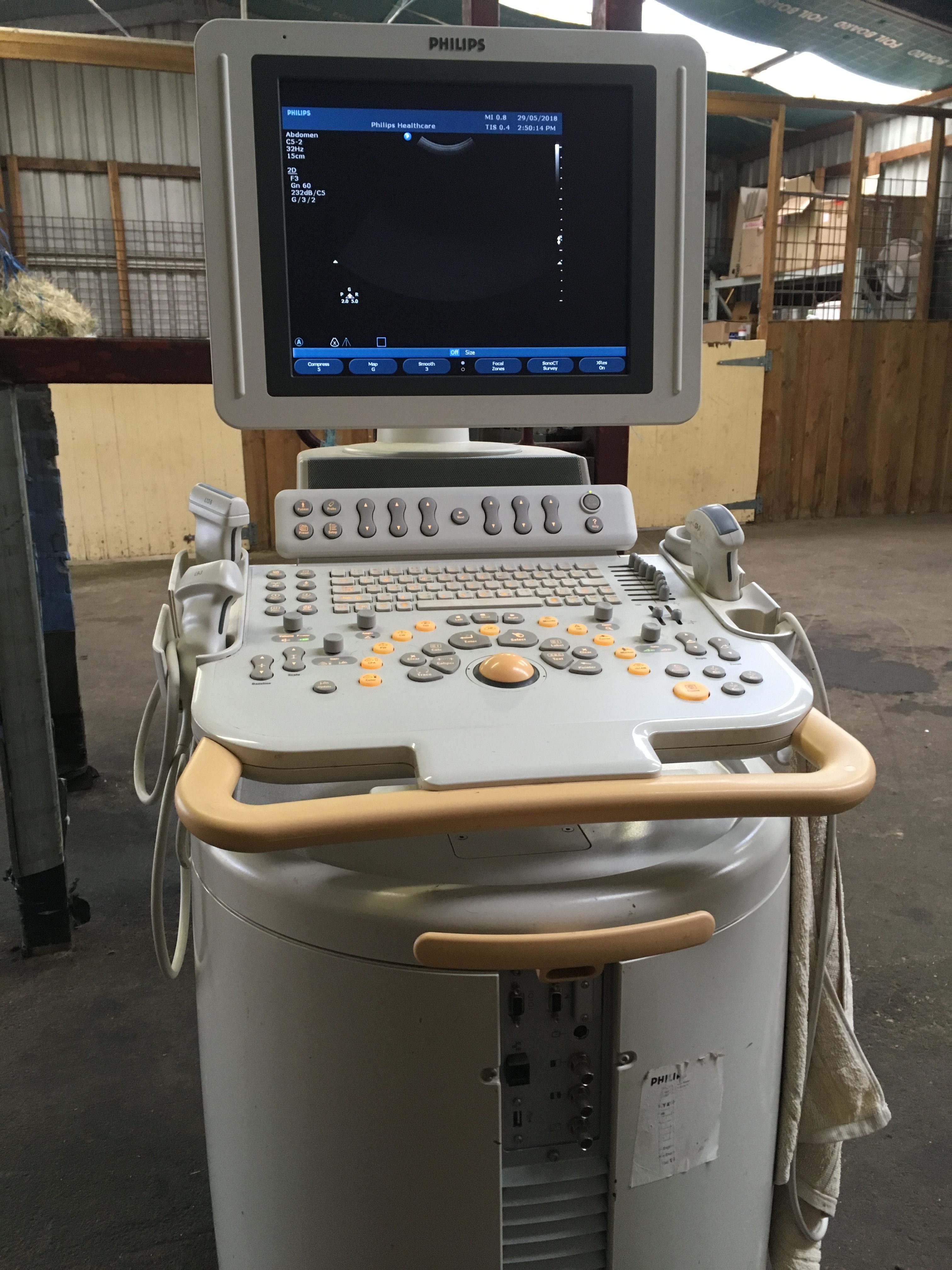
Ultrasound
Each veterinarian is equipped with diagnostic ultrasound essential for assessing soft tissue injuries, monitoring reproductive cycles, infertility examinations and pregnancy diagnosis. In addition we have an in-clinic high performance Philips machine equipped with 3D and colour doppler for enhanced soft tissue imaging.
Australian Stud Book registered vets.
Digital Radiography
Our wired Eklin Radiology unit has served us well, and we have now just purchased the latest technology in a wireless system from Miatech. The image quality has made another dramatic leap forward, advancing once more our diagnostic capabilities when it comes to the horse’s bony anatomy. These high-quality digital pictures can then be manipulated by way of brightness, contrast and magnification to assist our veterinarians during examination procedures
Ambulatory Services
We provide an ambulatory service for the Longford and Launceston areas. Depending on workload we may also service areas further afield. We provide emergency service for existing clients, however we do require wherever possible that you bring your horse to the clinic. This ensures we have all the necessary equipment available that may be needed as well reducing the fees to you.
Reproduction
We have long term relationships with Tasmanias leading studs and provide them and many individual horse owners with reproductive services. We have the equipment needed and our experienced veterinarians provide many services such as monitoring reproductive cycles, artificial insemination of mares with both chilled and frozen semen Learn More, embryo transfer Learn More, attend foaling and post foaling checks. We offer advice on the management of foals particularly in relation to leg conformation.
Platelet Rich Plasma (PRP)
Platelets are a normal component of blood. They play an integral part in the early repair process at the site of any injury, by the use of growth factors and the stimulation of new blood supply. This is important as one of the major limiting factors for tendon and ligament regeneration is poor blood supply to the injured tissue. PRP has been shown to increase, in particular the collagen fibres that are required to make normal tendon fibres.
By slowing cartilage degradation, increasing hyaluronic acid production and increasing mobility PRP is also helpful in the treatment of joint injuries and disease.
PRP delivers a high concentration of platelets capable of recruiting and proliferating the cells necessary for faster and more complete healing. This is injected into the affected joint or under ultrasound guidance into the injured tendon or ligament.
This technique has the advantage of being immediately available for on site treatment, and involves no general anaesthetic or surgery.
Sacro –iliac joint injection
With the acquisition of our new Philips ultrasound machine we are now able to offer ultrasound guided injection of the sacro-iliac joint. This offers a previously unavailable method of treating chronic sacro-iliac pain with its associated loss of topline muscle and inadequate hind quarter drive. Learn more
Prepurchase examinations
We conduct Pre Purchase examinations in accordance with the Australian Equine Veterinary Association recommended procedure. However we are also able to tailor these examinations to the clients specific needs, incorporating additional tests such as X-rays, scoping, tendon ultrasound scans etc when required. We generally require these to be done at the clinic.
Endoscopy
Endoscopy is frequently undertaken to diagnose upper respiratory conditions. This along with tracheal washes and bronchi-alveolar lavages are essential in helping determine the cause of poor performance as well as other conditions.We have both portable and video endoscopy equipment. The latter allows clients to also view what the veterinarian is seeing and hence gain a better understanding of the various conditions. Most clients consequently prefer to bring their patients to the clinic to avail themselves of this.
Lameness & Podiaty
Our veterinarians work closely with your horse to determine the cause of its lameness. Once the lameness issues have been identified, our veterinarians proceed to provide the necessary treatment and rectify the problem in a timely manner. We have close working relationships with local farriers to assist where necessary.
Dentistry Services
We offer Dental Services both in clinic or on an outpatient basis. We utilise an Edge HDE 36V power float. This equipment is the latest in power floats and has the advantage of a quiet motor away from the horse’s head. It is consequently well tolerated by the patient. In addition to being a great aid for Veterinarians, taking some of the hard work out of the procedure, it also shortens the duration. This equipment is excellent for removing those caudal hooks that proved to be so difficult with hand tools. All horses are sedated and generally tolerate the procedure quite well.
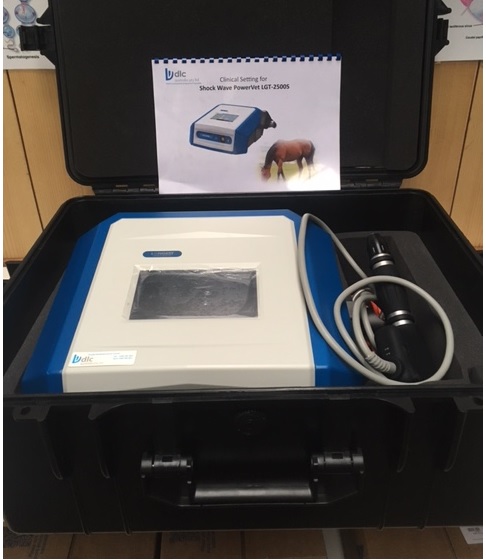

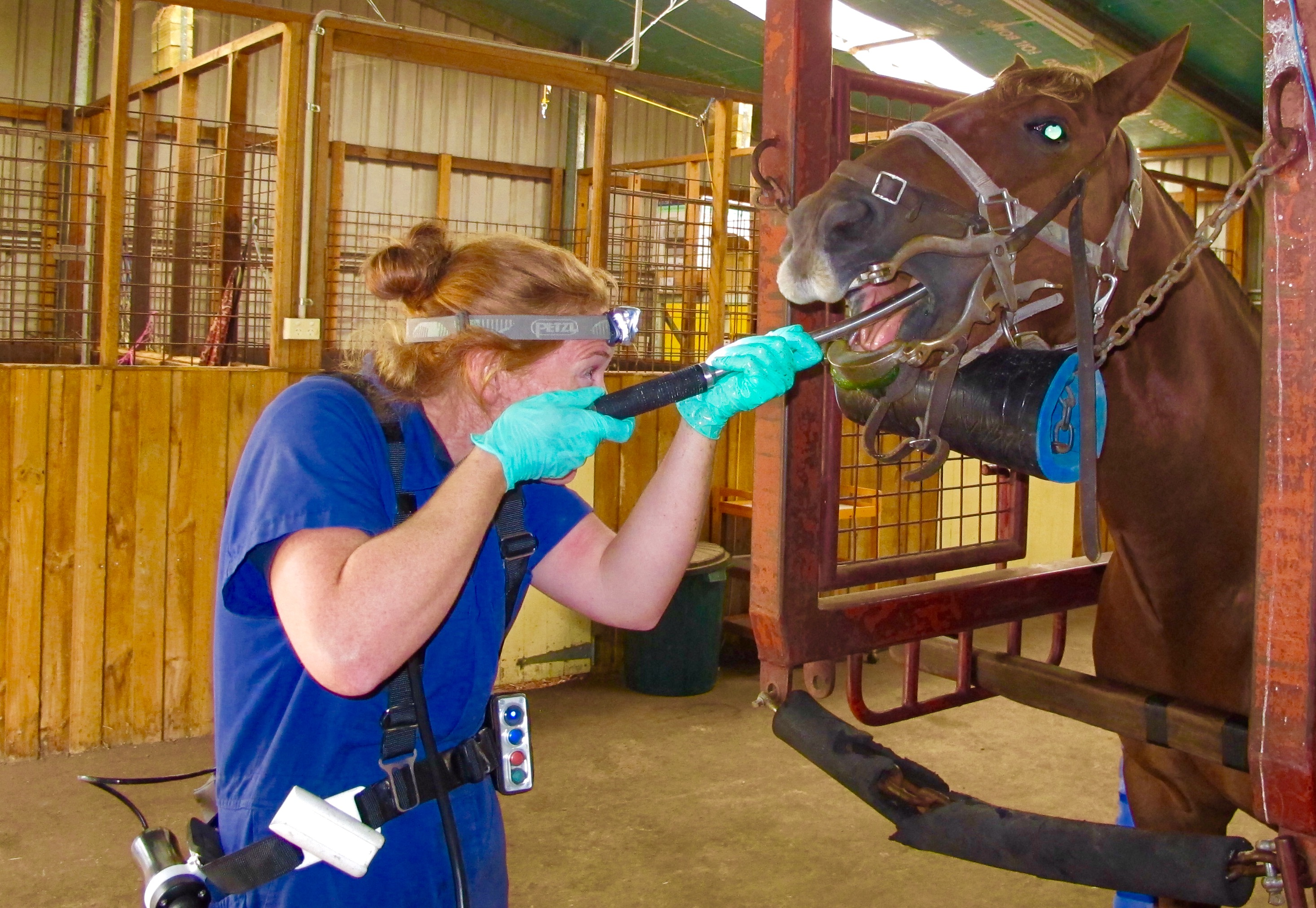
Extracorporeal Shockwave
Extracorporeal shockwave therapy has been a widely used treatment for painful orthopaedic conditions in humans and animals for a considerable time now. In humans it was originally used for the treatment and disruption of bladder stones. During such treatment it was also discovered to have various beneficial effects on the patient’s musculoskeletal system. Since then shockwave has been shown to be quite effective in treating a range of common equine athletic injuries. These include suspensory desmitis, sesamoiditis, bone spavin, osteo-arthritis and back myositis.
Extracorporeal shockwaves are pressure waves that are generated outside the body which can travel through fluid and soft tissue disrupting areas of inflammation. This has both an analgesic and reparative effect. We now have the only equine shockwave machine in Tasmania

